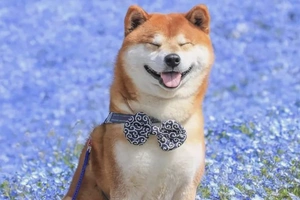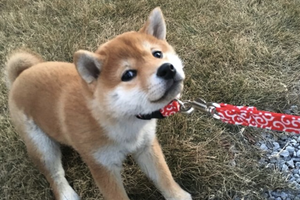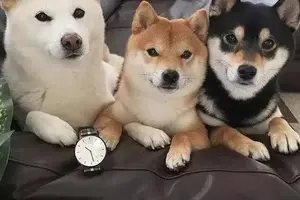
Kawaii culture and Shiba Inus are two beloved aspects of Japanese culture that have captured the hearts of people around the world. Kawaii culture, which translates to “cute” or “adorable,” is a major part of Japanese identity and can be seen in everything from fashion to food. Shiba Inus, on the other hand, are a breed of dog that originated in Japan and have become popular around the world for their loyalty, intelligence, and, of course, their adorable appearance.
In this blog, we will explore the relationship between kawaii culture and Shiba Inus, and how they have become a match made in heaven. We will delve into the history of kawaii culture and how it has influenced the popularity of Shiba Inus. We will also look at the various ways Shiba Inus are incorporated into kawaii culture, from merchandise to social media trends. This blog is perfect for anyone interested in Japanese culture, cute things, or just wants to learn more about the adorable Shiba Inu breed.
What is Kawaii Culture?
Kawaii culture is a major part of Japanese identity and can be seen in many aspects of daily life. The term “kawaii” translates to “cute” or “adorable,” and it is used to describe things that are charming, innocent, or childlike. Kawaii culture has its roots in the 1970s, when the term was first used to describe the growing popularity of cute fashion and accessories among young women in Japan.
Over time, kawaii culture has evolved to encompass many different aspects of Japanese life, from food to entertainment. It has become a major part of Japanese identity and has spread around the world, influencing fashion, music, and popular culture. Kawaii culture is often associated with a sense of innocence, playfulness, and positivity, and it is widely admired for its ability to bring joy and happiness to people’s lives.
The Popularity of Shiba Inus
Shiba Inus are a breed of dog that originated in Japan and have become increasingly popular around the world in recent years. They are known for their loyalty, intelligence, and, of course, their adorable appearance. Shiba Inus have a distinctive fox-like appearance, with pointed ears and a curled tail, and they come in a variety of colors, including red, black, and cream.
Shiba Inus have a long history in Japan, where they were originally bred for hunting small game. However, they have become increasingly popular as companion animals in recent years, both in Japan and around the world. In the United States, for example, Shiba Inus have become one of the most popular dog breeds, ranking 44th out of 195 breeds in terms of popularity.
The popularity of Shiba Inus can be attributed to many factors, including their charming personality, their adaptability to different living situations, and their status as a symbol of Japanese culture. They have also become popular on social media platforms like Instagram and TikTok, where their cute and entertaining personalities have captured the hearts of millions of fans around the world.
Shiba Inus in Kawaii Culture
Shiba Inus have become a popular subject in kawaii culture, with their adorable appearance and charming personality making them a natural fit for the cute and playful aesthetic of kawaii. Shiba Inus are featured in a wide range of kawaii merchandise, from plushies and keychains to clothing and stationery.
One popular example of Shiba Inus in kawaii culture is the “Shiba Inu Cafe” trend, where cafes are decorated with Shiba Inu-themed decor and customers can enjoy drinks and food while surrounded by cute and cuddly Shiba Inu plushies. Shiba Inus are also popular on social media platforms like Instagram and TikTok, where they are featured in a wide range of cute and entertaining videos and photos.
In Japan, Shiba Inus are often used in advertising and marketing campaigns, particularly for products that are marketed to young women. They are also frequently featured in anime and manga, further cementing their status as a beloved symbol of kawaii culture.
The Shiba Inu Meme
The Shiba Inu has become a popular subject for memes on the internet, with their expressive faces and quirky personalities making them a natural fit for the world of online humor. One of the most popular Shiba Inu memes is the “Doge” meme, which features a Shiba Inu with text written in broken English, often used to express humorous or absurd thoughts.
The popularity of the Shiba Inu meme has helped to increase the breed’s popularity, particularly among younger generations who are more likely to be active on social media. The meme has also helped to spread awareness of the breed’s unique personality traits, such as their stubbornness and independence, which can make them challenging pets for inexperienced owners.
While the Shiba Inu meme is often used for humorous purposes, it has also been criticized for perpetuating stereotypes about Asian cultures and contributing to a larger pattern of cultural appropriation. However, many people continue to enjoy and share Shiba Inu memes, seeing them as a lighthearted and fun way to express themselves online.
Shiba Inu Influencers
Shiba Inus have become popular influencers on social media platforms like Instagram and TikTok, where their adorable appearance and charismatic personalities have captured the hearts of millions of fans around the world. These Shiba Inu influencers often have huge followings, with some accounts boasting hundreds of thousands or even millions of followers.
One of the most famous Shiba Inu influencers is Maru, who has over 2 million followers on Instagram. Maru is known for his playful and mischievous personality, and his owners often dress him up in cute outfits and accessories for their photoshoots. Another popular Shiba Inu influencer is Goma, who has over 500k followers on Instagram. Goma is known for his expressive face and photogenic poses.
Shiba Inu influencers are often monetized through brand deals and merchandise sales, with companies eager to partner with these popular pets to promote their products. They are also able to generate income through merchandise sales, with fans eager to buy merchandise featuring their favorite Shiba Inu influencers. Overall, Shiba Inu influencers have become a major force in the world of kawaii culture, helping to spread awareness of the breed and its unique personality traits.
Criticism of Kawaii Culture and Shiba Inus
While kawaii culture and Shiba Inus are beloved by many, they have also faced criticism for the ways in which they are marketed and treated. One of the main criticisms of kawaii culture is that it perpetuates unrealistic beauty standards, particularly for women, and can contribute to a culture of materialism and consumerism.
Some critics also argue that the popularity of Shiba Inus has led to overbreeding and commodification, with breeders focusing on producing dogs with certain physical traits rather than prioritizing their health and well-being. This can lead to health issues and genetic disorders in the breed, and can also contribute to the problem of pet overpopulation.
There is also concern about the way Shiba Inus are marketed as cute and cuddly accessories, rather than living beings with their own needs and personalities. This can lead to people buying Shiba Inus without fully understanding the responsibilities that come with pet ownership, or without considering whether they are able to provide a suitable home for the dog.
Despite these criticisms, many people continue to love and appreciate kawaii culture and Shiba Inus, seeing them as a source of joy and happiness. There are also efforts underway to create a more ethical and sustainable approach to kawaii culture and pet ownership, through initiatives such as responsible breeding practices and education campaigns about responsible pet ownership.
Kawaii culture and Shiba Inus are a match made in heaven, with their adorable appearance and charming personalities capturing the hearts of people around the world. Kawaii culture has helped to increase the popularity of Shiba Inus, incorporating them into merchandise, social media trends, and even cafes.
While kawaii culture and Shiba Inus have faced criticism for the ways in which they are marketed and treated, they continue to be beloved by many. As we move forward, there is a growing awareness of the need to create a more ethical and sustainable approach to kawaii culture and pet ownership, one that prioritizes the well-being of the animals and the people who love them.
Overall, kawaii culture and Shiba Inus are a testament to the power of cuteness and the joy it can bring to people’s lives. Whether you’re a fan of Japanese culture, cute things, or just looking for a new furry friend, the Shiba Inu is sure to win your heart with its unique personality and adorable appearance.





